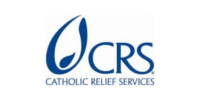From Talk to Action: A New Financial Tool for Locally-led Development
Imagine having to prepare multiple different audit reports every time you need to apply for funding. If you’re an NGO, you don’t have to imagine that reality – you live it.
If you’re a funder, you live the reality of trying to turn multiple due diligence reports into a coherent narrative to show good use of donor funds.
What if donors would accept one standard for financial due diligence?
That’s why seven members of the Charter for Change (C4C) coalition were interested in exploring alternatives. Humentum facilitated the development of the new Due Diligence Passporting Toolkit, together with the compliance leaders of the pilot organizations.









